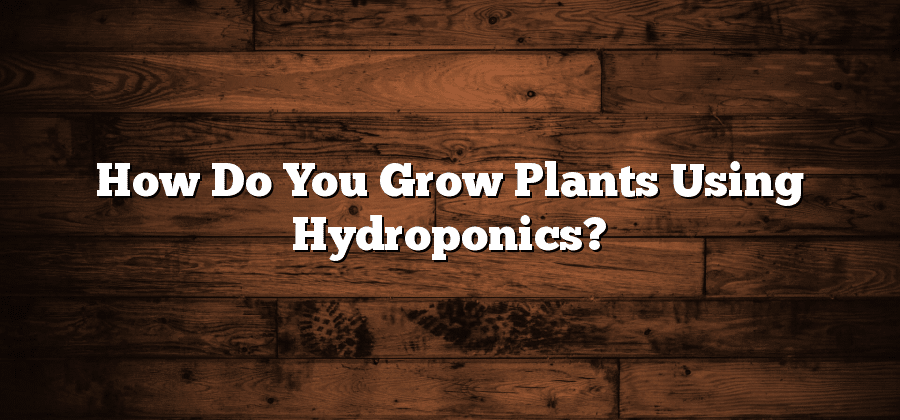Understanding the Basics of Hydroponics
Hydroponics is a modern method of growing plants without the use of traditional soil. Instead, plants are grown in nutrient-rich water solutions, which supply all the necessary minerals for healthy growth. This technique offers several advantages over traditional gardening, including increased control over plant nutrition and reduced water usage.
One of the key features of hydroponics is the ability to customize and optimize plant nutrition. By providing plants with a carefully balanced mix of essential nutrients, such as nitrogen, phosphorus, and potassium, growers can ensure that they receive exactly what they need for optimal growth. This precise control over nutrient levels allows for faster growth, healthier plants, and higher yields. Additionally, the absence of soil helps eliminate the risk of soil-borne diseases and pests, creating a more sanitary growing environment. Overall, hydroponics provides an efficient and sustainable way to grow plants, making it a popular choice for both commercial and hobbyist growers.
Selecting the Right Hydroponic System for Your Plants
Hydroponics is a popular method of growing plants without soil, and there are several different hydroponic systems to choose from. Each system has its own advantages and disadvantages, so it’s important to select the right one that suits your specific plant and growing conditions.
One commonly used hydroponic system is the Nutrient Film Technique (NFT), which involves a thin film of nutrient-rich water flowing over the roots of the plants. This system allows for maximum oxygenation of the roots and is ideal for growing leafy greens and herbs. Another popular option is the Deep Water Culture (DWC) system, where the plant roots are suspended in a nutrient solution. This system is particularly effective for growing larger plants such as tomatoes and peppers. Vertical hydroponic systems, on the other hand, are perfect for maximizing space in smaller areas and can be used for a variety of plants. Whatever system you choose, it is crucial to consider the needs and requirements of your plants in order to achieve optimal growth and yield.
Essential Nutrients for Hydroponic Plant Growth
In hydroponic plant growth, providing the essential nutrients is crucial for achieving optimal plant health and productivity. Unlike traditional soil-based cultivation, hydroponics relies on a nutrient solution to deliver the necessary elements directly to the plant roots. These essential nutrients include macronutrients, such as nitrogen (N), phosphorus (P), and potassium (K), as well as micronutrients, like iron (Fe), manganese (Mn), and zinc (Zn).
Each nutrient plays a specific role in plant growth and development. Nitrogen is essential for leaf and stem growth, phosphorus aids in root development and flowering, and potassium promotes overall plant health and disease resistance. In addition, micronutrients are equally important, albeit required in smaller quantities. Iron, for instance, is necessary for chlorophyll synthesis, while zinc plays a crucial role in enzyme activity. It is important to maintain a balanced nutrient solution to ensure the plants receive all the necessary elements for their growth and development.
Choosing the Ideal Growing Medium for Hydroponics
Choosing the ideal growing medium for hydroponics is a crucial step in setting up a successful system. The growing medium serves as a support system for the plants’ root structures, providing stability and anchorage. It also plays a vital role in maintaining a well-balanced water and nutrient supply to the plants. There are various options available for hydroponic growing mediums, each with its own advantages and suitability for different types of plants.
One commonly used growing medium for hydroponics is *perlite*. It is a lightweight volcanic rock that provides excellent aeration and drainage for the roots. Perlite has a neutral pH, which makes it suitable for a wide range of plants. Another popular choice is *rockwool*, a fibrous material made by spinning molten rock or slag into fibers. Rockwool has excellent water retention capabilities, ensuring that the roots have access to a steady supply of moisture. It also provides good insulation and pH stability, making it ideal for the growth of delicate seedlings.






